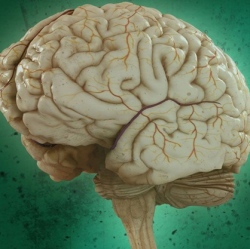
An Alzheimer’s drug has been shown to successfully target the most visible sign of the disease in the brain, raising hopes that an effective treatment could be within reach. A small trial of the drug was primarily aimed at assessing safety, but the findings suggest it effectively “switched off” the production of toxic amyloid proteins.
If the tablet, produced by pharmaceutical giant Merck, is also shown to slow the pace of mental decline, a crucial question that a major clinical trial should answer when it reports next year, it could be the first treatment for Alzheimer’s to be licensed in more than a decade.
Prof John Hardy, a neuroscientist at UCL who first proposed that amyloid proteins play a central role in Alzheimer’s disease, welcomed the results. “People are excited,” he said. “This is a very nice drug and I’m sure Merck are feeling very pleased with themselves.”
Matt Kennedy, who led the trial at Merck, said: “Today there are very limited therapeutic options available for people with Alzheimer’s disease, and those that exist provide only short-term improvement to the cognitive and functional symptoms. They do not directly target the underlying disease processes. There is an urgent need for [these].”
